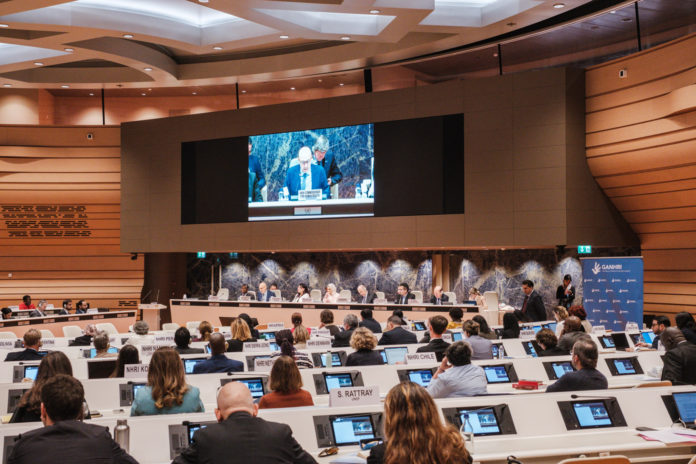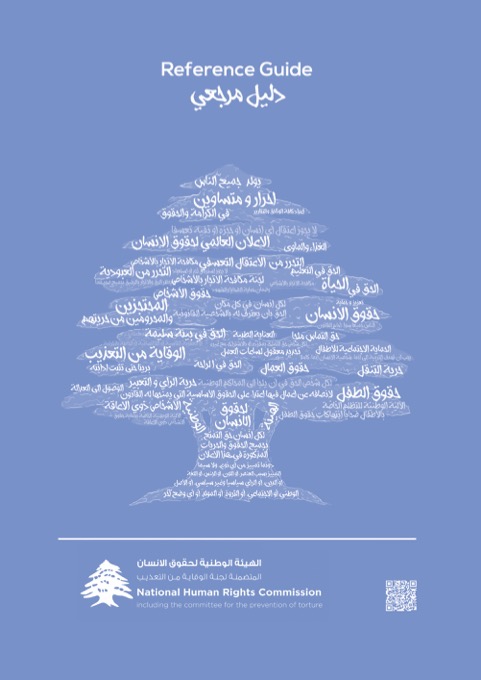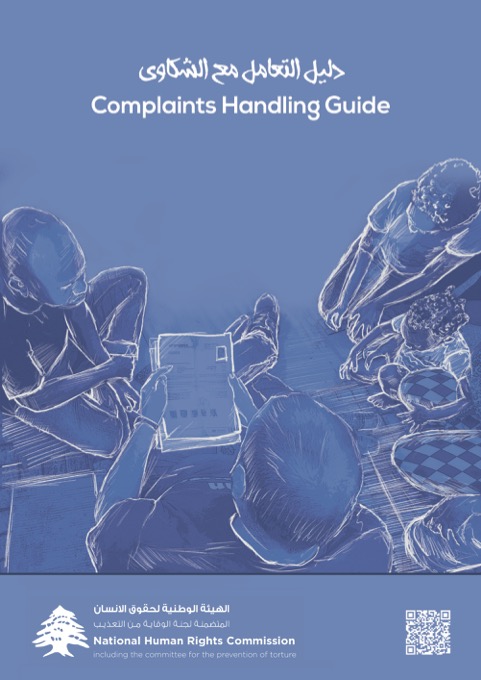هذه المقالة متاحة أيضًا بـ: العربية (Arabic)
In a temporary office tucked away in Hazmieh, Lebanon’s National Human Rights Commission, including the Committee for the Prevention of Torture (NHRC-CPT), carries a heavy burden. As Lebanon grapples with political instability, economic collapse, and shrinking civic space, the NHRC-CPT stands as one of the last institutional lines of defense for human rights defenders (HRDs)—a line that is increasingly under attack.
A recent submission by the Commission of International Relations at Lebanon’s National Human Rights Commission to the Global Alliance of National Human Rights Institutions (GANHRI) reveals a bleak but candid portrait of Lebanon’s human rights landscape in 2025. From journalists facing criminal defamation charges to environmental activists fighting intimidation from powerful business interests, the report outlines a relentless campaign of threats and reprisals aimed at silencing those who dare to speak out.
Activists on the Frontlines
Among the most targeted are women and HRDs. “They face a dual threat—both for their activism and for who they are,” the submission notes. Online harassment, social shaming, and gender-based violence are rampant. LGBTQ+ rights defenders, in particular, operate in legal limbo, criminalized under Lebanon’s morality laws and exposed to harassment by both state and non-state actors.
The NHRC’s strategic roadmap for 2025–2027 identifies these groups as key priorities. But without legal protections and amid a backdrop of societal hostility, progress remains elusive. “We are building a house without a foundation,” the submission remarks, referring to the lack of a national legal framework for the protection of HRDs.
Silencing the Watchdogs
Even the NHRC itself is not spared. Budget cuts and bureaucratic hurdles threaten the Commission’s very existence. The relevant ministers have not issued the implementing decrees for Law No. 62 dated October 27, 2016, with the exception of the decrees establishing the National Human Rights Commission and the National Committee for the Prevention of Torture. However, the decrees related to setting the compensation for the Chair, Vice-Chair, and members of the Commission, allocating a headquarters for the Commission, as well as the internal and financial regulations—which the Commission submitted to the General Secretariat of the Council of Ministers two months after its formation, in accordance with the requirements of the law—have yet to be issued.
Environmental Defenders in the Crosshairs
Environmental activism has surged in Lebanon in recent years—most notably the successful campaign to halt the Bisri Dam project in 2020. But this growing movement has also attracted retaliation. Environmental human rights defenders (EHRDs), especially women and rural activists, have faced exclusion from decision-making spaces, threats from politically connected developers, and harassment online and offline.
The Commissioner highlights the efforts of local groups, which continue to fight back through reforestation campaigns and climate advocacy. But legal protections remain virtually nonexistent. Lebanon’s Environmental Protection Law, passed in 2002, lacks explicit recognition of EHRDs, and recent regulations offer little more than symbolic public consultation.
A Commission in the Crossfire
Despite its challenges, the NHRC-CPT is not retreating. Its strategy includes developing early warning systems, creating civil society feedback loops, and advocating for whistleblower protections. The Commission also collaborates with international bodies and has engaged with the UN System.
Still, the NHRC-CPT remains cautious. “We need more than symbolic support. We need real legal reforms, budgetary backing, and protection for those who risk everything for justice.”
The Road Ahead
Lebanon’s NHRC has yet to align fully with global frameworks like the Marrakech Declaration. Resource constraints, delayed operationalization, and political resistance remain significant barriers. But the mission is clear: “We must hold the line for civic space, for freedom of expression, and for the defenders of dignity.”
In a region where rights are too often trampled underfoot, the Lebanese NHRC is trying—against all odds—to stand tall. And while their path is fraught with danger, their voice is one the country, and the world, cannot afford to lose.


